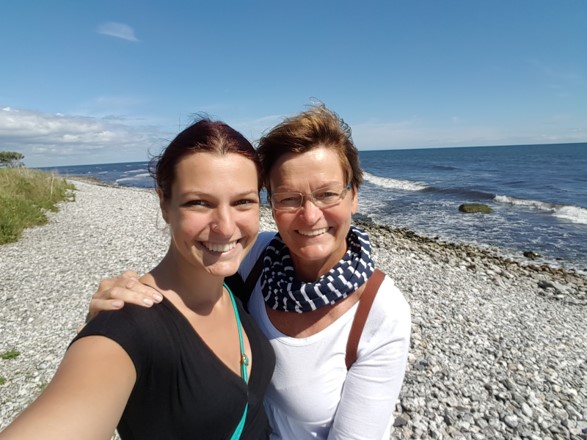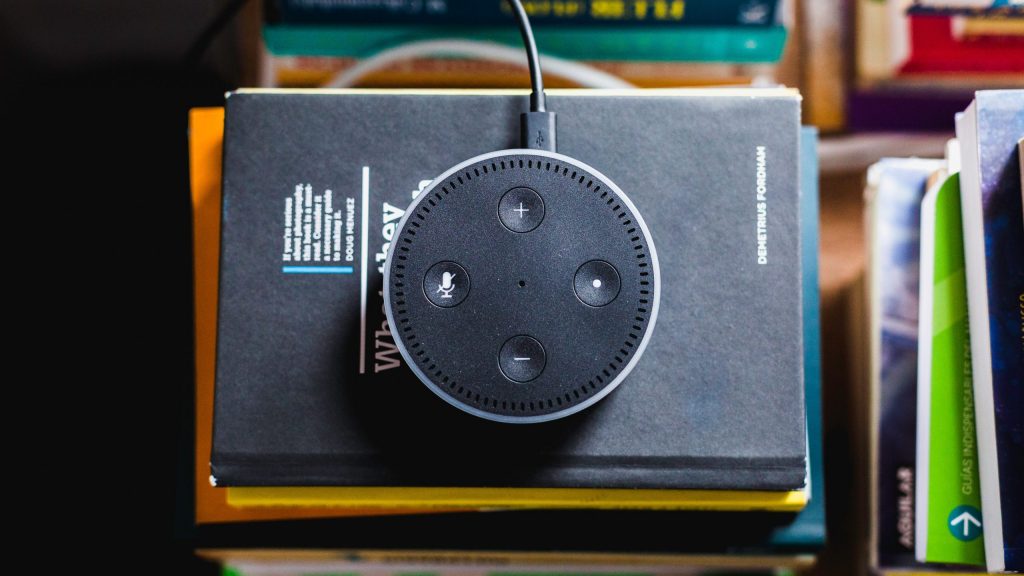Building self-esteem and supporting students with ADHD
28th October, 2022
As we mark ADHD Awareness Month, we spoke to one of our tutors, Dr. Bella, about her personal experiences with ADHD and her advice for parents and tutors.
Dr. Bella is a FY2 doctor, currently studying for a diploma in tropical medicine & hygiene in addition to her clinical work. She tutors students in a variety of subjects, including in the Sciences.

What was it like growing up with ADHD? What have your personal experiences taught you?
My mother noticed that something was different when I was three or four years old. I would get easily distracted and struggle with short-term memory recall. I remember I would pick up the cat and my mum would say “you can’t pick up the cat, it doesn’t like it”, and I would say “okay mum”, and I’d put it down, and then 120 seconds later I’d pick it up again.
I was in mainstream schooling, except for a year and a half when I was 8, when I was home-schooled, which was incredible. After school, I went on to earn my BA in Clinical Psychology and Masters in Neuroscience, and then my MBChB. I’m now studying for a Diploma in Tropical Medicine & Hygiene.
Parenting a child with ADHD is like parenting on hard mode. Of course my mum made mistakes growing up; I did sometimes get punished for things that weren’t my fault. I also got away with things that I shouldn’t have! But I love her because I know she was always doing her best. I can’t remember a time that I didn’t know that I was different, but I also cannot remember a time that I didn’t feel loved and special in a good way, which is wonderful.
The way I like to describe having ADHD in a neurotypical world is like being a penguin in Texas. If you’ve got a Penguin in Texas, and that penguin is not interacting, not developing well, maybe not eating, sleeping at the wrong times of day – is the problem with the penguin?
I’ve learned three major things:
- There will always be those who doubt you, so you need to build an inner strength to disregard them – and sometimes this will include you.
- The ‘best/correct’ way to do something is usually ‘the best way for a neurotypical person to do something’ – if it doesn’t feel right to you, do it your way.
- There’s almost nothing you can’t do if you fight hard enough, but that doesn’t mean you have to.
How do you build your experience into your work with children with ADHD?
When you tutor privately, unlike in a school environment, you have this huge blessing of control. You can give them exactly the environment they want and need. You can then slowly develop their confidence.
I find it so satisfying to work with neurodiverse students because they’re not predictable. It pushes you to really concentrate on the job you’re doing, and you get to try all these different strategies to help them succeed. It’s amazing to be able to figure out what it is that they need, and help them engage with their work. Finding these strategies and helping these students to develop skills and confidence can have a life-changing impact.
One of the things I find helpful for children is scaffolding, building structure into learning. In one way, people with ADHD hate structure and don’t like being told what to do, but in others, we need and crave structure!
It’s also so incredibly important that you put self-esteem above everything else. I find what you need to teach is that you can suck at something, and still have value – it’s nothing to do with you as a person. While we want them to succeed academically, it’s important not to inadvertently teach that success is what makes them worthwhile.

What do you think are the biggest misconceptions about ADHD? What do we need to talk about more?
There’s good research to show that girls with ADHD tend to have a different sub-type to boys. The problem here is also that there’s also an overlap with gender expectations: from a very young age, girls are expected to make things easier for those around them. When you see a young girl who’s just a little bit quiet, a little bit withdrawn, that doesn’t stand out as much as a young boy with very typical ADHD symptoms.
If you’re a teacher of a class of 30 and a boy is throwing books at the wall, you have to respond to that. If a girl is not necessarily thriving academically and is staring out the window quietly, she’s not creating a problem that you have to imminently solve. It’s really important that we talk about ADHD in girls and make sure that they are also getting the individualised support they need to thrive.
Another misconception is that ADHD is associated with a particularly high or low IQ, or that someone who is ‘smart enough’ won’t have difficulty – both are categorically false. Existing studies suggest there is no correlation with IQ and even the most intelligent people still struggle with their ADHD though they may mask this well up to a certain age.
What advice would you give to tutors and to parents?
If you’re a parent of a child with ADHD, or are working with a student with ADHD, I would suggest:
1. Acknowledge ADHD: Get diagnosed and / or talk about ADHD openly. Children know they’re different, and I think we often don’t give children enough credit. Even if they’re so young that they’re not necessarily verbalising this, it doesn’t mean it hasn’t been internalised. If you compare the negatives of that internalised self-doubt with the potential negatives of a ‘label’, by being open you are choosing the more positive option.
2. Empower them to know themselves: If they know themselves, they will produce their best work. They shouldn’t feel like they need to try to be a neurotypical person; it will become a massive self-esteem problem. I think of it as – most people are Macbooks; they’re very user friendly. Neurodiverse people, like myself, we run Linux. The computer can do everything, but you’ve got to instruct it, and it takes a little bit more work to get around the controls.
3. Find out what they’re good at: If you have or are working with a child with ADHD, you’ll know they have an incredible ability to think outside the box. They are very often the type of people who become entrepreneurs and developers because they see things in a different way. Generally, children with ADHD don’t give themselves enough credit for what they’re good at, because it seems obvious to them. Help them identify their special skills, talents and superpowers.
4. Keep trying: The most important thing is to keep making an effort to find those strategies that support children with ADHD and develop their confidence and self-belief. It can be difficult at times; it’s impossible sometimes, for example, to distinguish ADHD symptoms from misbehaviour, but approaching it compassionately and always trying makes a big difference.
5. Be honest and share your experiences: When you’re a child, your family and close network are your definition of ‘normal’. If you’re a parent or a tutor, and you have ADHD or can recognise some of the problems children are facing with their ADHD in yourself, be honest. Share your experiences – ‘When I was a kid, I found that specific thing hard too’. This builds confidence and helps students to feel less alone, and that another ‘different’ person is there to look up to.

What resources or techniques would you recommend for supporting young people with ADHD?
There’s now an overwhelming amount of apps and programs, some of which are very expensive, tapping into the market for ADHD-aids. I’ll share only what I’ve personally used.
- 60x90cm Whiteboard
- I have made a 3 month calendar with black tape and use colour coded whiteboard markers. I have a distinctive magnet that is “me” and I hop along the board, this way I can see the day with a glance. Major events are in red to stand out.
- Clock
- My clock is setup nexto the whiteboard and has the Day, Date, Month, and time. This is very orienting as while everyone else wakes up knowing it’s Wednesday… I don’t always! These clocks are often marketed on Amazon for Alzheimers, but they work for me!
- Alexa
- As my schedule as a doctor is so varied I can’t set a 7:30 every day alarm, so every night before I go to sleep I shout at Alexa when to wake me up – it’s cathartic. I often suffer ‘head spin’ as the flood of what I suddenly remember hits just as I need to sleep– so I can tell Alexa to remind me at a specific time and then relax knowing it’s been noted and I can sleep – and all without getting out of bed. She’s also great for alarms – sometimes I’ll just set her to ring in an hour as that will remind me, no matter what I’m up to, how much time has passed.
- Coggle
- Mind mapping program, free and paid versions, works on computer or tablet and enables the use of various lines and a wide array of colours.
- Google Calendar
- GCal has all my work-schedule in it, and ‘tasks’ which have a very satisfying tick box- these can be all-day or set for a time, and have alerts. I still forget them, but I can look at the past week and move them forward. It’s a tool, not a cure for my forgetfulness.
- Keep Notes
- A phone app that enables you to basically keep sticky notes– and search them! I use it for everything and it’s a mess but because you can search and because you can pin important notes to the top- it really works. You are also able to add tick boxes, images, or even alarms to notes.
- Weighted blanket
- I have three and they are an absolute godsend for when I am overwhelmed, stressed, anxious, or struggling to sleep. A crafty friend also made me a “lap” one which is essentially a 30X40cm ‘blanket’ that can come with you (e.g. train, car, school). I don’t think these are commercially available – if you’d like one get in touch and I’ll see if I can get one made for you.
- Tiny Decisions
- A satisfying phone app that allows you to spin a wheel to help decide what to do next. You can set any number of tasks and if the spinner is allowed to fall on the same one twice in a row or not. It helps with decision paralysis for things like what do I make for dinner, or where do I start with cleaning / studying. It may also help that it wasn’t you that decided! Tip: Make sure the options are very specific – e.g. ‘gather all laundry’ or ‘change sheets’, not ‘clean room’.
- Stocard
- More for the adults, this keeps your store cards scanned in one place so you can stop trying to keep track of all those fobs. Tesco, Superdrug, Nectar, BP, and because it lets you scan any card. I also keep my student card on there.
Advice from Dr. Bella’s mum
Dr. Bella also shared this advice from her mum:
“Be ready to openly admit to your child when you have made a mistake, as it allows them to learn how to admit mistakes without fear and take responsibility as they have seen you do the same. As a child Bella always took responsibility- and still does.”
“Neurodiverse children were just left behind because the educational system isn’t geared for them and now we have learnt and understood that many of these ND people, children/adults, just learn in a specific way and we have to adapt to that to not lose out on that talent in society.”

Further Reading:
- Kok FM, Groen Y, Fuermaier ABM, Tucha O. The female side of pharmacotherapy for ADHD-A systematic literature review. PLoS One. 2020 Sep 18;15(9):e0239257. doi: 10.1371/journal.pone.0239257. PMID: 32946507; PMCID: PMC7500607.
- Rucklidge JJ. Gender differences in attention-deficit/hyperactivity disorder. Psychiatr Clin North Am. 2010 Jun;33(2):357-73. doi: 10.1016/j.psc.2010.01.006. PMID: 20385342.
- Young S et al. Females with ADHD: An expert consensus statement taking a lifespan approach providing guidance for the identification and treatment of attention-deficit/ hyperactivity disorder in girls and women. BMC Psychiatry. 2020 Aug 12;20(1):404. doi: 10.1186/s12888-020-02707-9. PMID: 32787804; PMCID: PMC7422602.